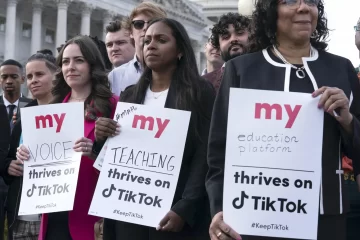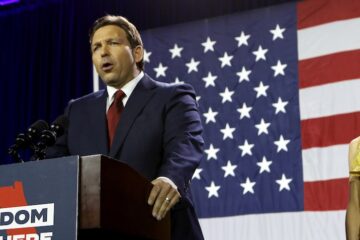Eight years ago, America experienced a surge in hate crimes similar to the one we are witnessing now. Then, it was a protest, now it is a celebration.
Not of a victory against the policies of a president with a historically high approval rating, but a celebration of victory against the elite. November eighth’s election was largely about White America regaining power after witnessing terrifying economic, social, and political upheaval.
Nevertheless, President Obama’s tenure cannot be completely separated from national angst. The last eight years have featured revolutionary change in technology, media, and social relations. The discomfort and fear these changes have provoked make evaluating Obama’s legacy a Gordian Knot-like task. This is particularly true because the president’s greatest accomplishment is immeasurable: his ascension to power in a country built on the enslavement and plundering of bodies like his.

Hope instilled, change fulfilled
In 2007, then-Senator Obama announced his campaign for president on the same Illinois state house steps which Abraham Lincoln, his idol and America’s emancipator, made the same announcement a century and a half earlier. Throughout the campaign, endless depictions of Obama as a monkey and demands for his birth certificate reminded Americans of their country’s long history of dehumanising African Americans and disputing their Americanness. Few Americans wanted to confront this history. Tactfully, Obama enabled this avoidance—and has continued to do so in office—by refraining from citing race as the basis of often overtly racist criticisms. Obama prevailed in 2008 by absolving America from its repulsive past, and embodying hope and promising change in a country disillusioned with the status quo.
Once in office, President Obama fulfilled his promise for a new kind of politics–again, a la Lincoln–by appointing his rivals to top administration posts: Joe Biden became Vice President, Hillary Clinton became Secretary of State, and Republican and Iraq War advocate Robert Gates became Secretary of Defense. Under a unified government, the first-term president proceeded to back America away from the economic abyss nearly every other country fell into.

The autodidact entered the Oval Office with a comprehensive understanding of how he wanted to shape the world. Indeed, his speechwriters admitted that every one of Obama’s speeches has been a piece of the new “American narrative” Obama has tried to create in his effort to fundamentally alter Americans’ “vision about who (they) are and where we are going.”
Brookings Institution scholar Martin Indyk cites three prongs to this so-called Obama Doctrine: emphasizing diplomacy and convincing Americans that their military is not needed to solve every conflict; addressing global issues like climate change, terrorism, and pandemics, instead of regional issues; and moving US attention from the chaotic and self-destructive Middle East towards China and India.. Thus far, Obama has found the most success in his focus on global issues, such as the Paris Climate Treaty, nuclear nonproliferation, and his systematic addressing of terrorism, argues Indyk.
Hubris, contradictions, and mistakes
While time is needed for a proper evaluation of Obama’s Asian pivot, policies towards ISIS, Syria, and cyber and drone warfare raise immediate concern. Particularly notable are reports of US soldiers on the front lines in Syria and Iraq. Obama’s periodic deployment of more American troops in the region reeks of mission creep (the expansion of a mission beyond its original goals), and enables President-elect Trump to follow a similarly slow ramp-up of American involvement in the region without much controversy.
Furthermore, several blunders and contradictions between rhetoric and policy will surely follow Obama into his post-presidency. In his zeal to extract troops from Iraq and fulfil a campaign promise, Obama disregarded the development of sectarian strife, Iraqi politics, and the advice of his generals when he rapidly decreased America’s troop presence in Iraq and left a power vacuum for ISIS to fill. And despite his well-founded and early critique of Bush’s failure to plan for the “day after” the Iraq invasion, Obama supported an international led coalition that destabilised Libya and enabled ISIS to infest the now failed state.

As for the contradictions, after demanding the US fulfil its moral obligation by taking in more Syrian refugees, Obama has imprisoned or rejected and denied safety to thousands of Latin American refugees, many of whom are children and families, and deported more than two million people (more than the sum of all deportations under all presidents of the 20th century). And after practising civil rights law and lambasting Bush’s war on terror, Obama adopted nearly all Bush-era policies and according to Leonard Downie, the former executive editor of the Washington Post, “waged the worst war on the press since Nixon.” Indeed, he has prosecuted more whistleblowers under the heinous 1917 Espionage Act than all previous administrations combined.
Moreover, according to Charlie Savage of the New York Times, in addition to successfully fighting “in court to establish that the First Amendment offers no protection to journalists whom the executive branch chooses to subpoena to testify against confidential sources,” Obama left open the door for his successors to execute drone killings, prevent courts from reviewing such killings, indefinitely detain terrorists, and try terrorists in military tribunals.
In spite of it all
These devastating failures must not be omitted from any evaluation of the Obama legacy. However, focusing on them ignores every president’s primary role: to lead. And during a time when populist discontent, hate, and irrational fear are undermining developed societies and the liberal world order, Obama led America through a debilitating financial crisis and an unpredictable and dangerous world with grace, elegance, and magnanimity.
Furthermore, what must be recognised, yet is often forgotten due to its normalisation, is that Obama achieved this in the face of the most obstructive, polarised, and unproductive Congress in the history of the United States (Yes, political scientists have quantified these). In spite of this, Obama banned torture, created the Consumer Financial Protection Bureau, passed the Lily Ledbetter Fair Pay Act, provided healthcare to 20 million Americans, killed Osama bin Laden, terminated Iran’s ability to produce nuclear weapons, ended the Iraq War, saved the auto industry, opened relations with Cuba, dramatically expanded the clean energy sector, crafted a global climate deal and, among many other accomplishments that can’t fit into this column, revitalised America’s economy after the world’s worst financial crisis in nearly a century.

Arguments that Obama was too aloof and professorial in his interactions with Congress are baseless. He reached across the aisle far more than he is given credit for, and nearly every time he was met with belligerently oppositional Republicans who repeatedly stated openly that their job was to stop legislation, not solve problems. As for those disingenuously seeking to put Obama’s Democratic Party in the same boat as the Republicans, nonpartisan scientific research of partisanship says otherwise: over the past three decades, Republicans have become far more polarised than Democrats, and an obstructionist Congress is far more due to Republicans than their counterparts.
Progressives still often remain dissatisfied. Figures like Senator Bernie Sanders have conjured up an abstract world where Obama could have willed through a more liberal agenda. Their disconnect from reality is not dissimilar from the imaginations of the Tea Party or House Freedom Caucus. Indeed, Obama has adroitly addressed these critics by metaphorically characterising the American bureaucracy as a titanic ship; turns of a few degrees now, will result in expansive change a decade from now.

History will be kind
Yet, this change is too slow for many, especially for those filled with the hope America’s first black president parlayed to office. Obama’s effort to be a president for all Americans has left many feeling left behind. For instance, accusations that he has done nothing for African Americans prevail. This is true in terms of targeted legislation, but the Justice Department under Obama’s direction has pursued police reform and civil rights cases with as much vigour as his Department of Education’s addressing of school segregation. Though these and other similar unnoticeable bureaucratic policy changes remain wholly unsatisfactory to his critics, and understandably so, the notion that some form of reparations or other race-based legislation was passable under Obama is laughable.
Still, thoughtful Americans critique Obama for failing to use his voice when it mattered most: after incidents of police violence and explicit racism. Critics would be wise to listen to Ta-ne-hesi Coates, whose column in The Atlantic has accounted for the brief moment of bipartisanship that characterised the media’s reaction to Trayvon Martin’s murder. At the time, conservative and liberal commentators alike admitted that this was clearly a racially motivated murder. Yet, when Obama expressed similar concern in a press conference, this harmony mutated into vociferous, partisan attacks. Moments like this one seemed to have convinced Obama that such incidents would see better outcomes if he remained silent.
Evaluations of America’s forty-fourth president too often lack nuance. Obama is either credited with everything good that happened, or everything bad that happened. He’ll be treated as if he had unlimited, transcendental authority that he misused or ignored. Ultimately, Obama will be remembered as a president who, despite relentless and exhausting public animosity and racism, optimistically and gracefully led a divided country through an era of unsettling changes. Historians will smile upon the past eight years.



